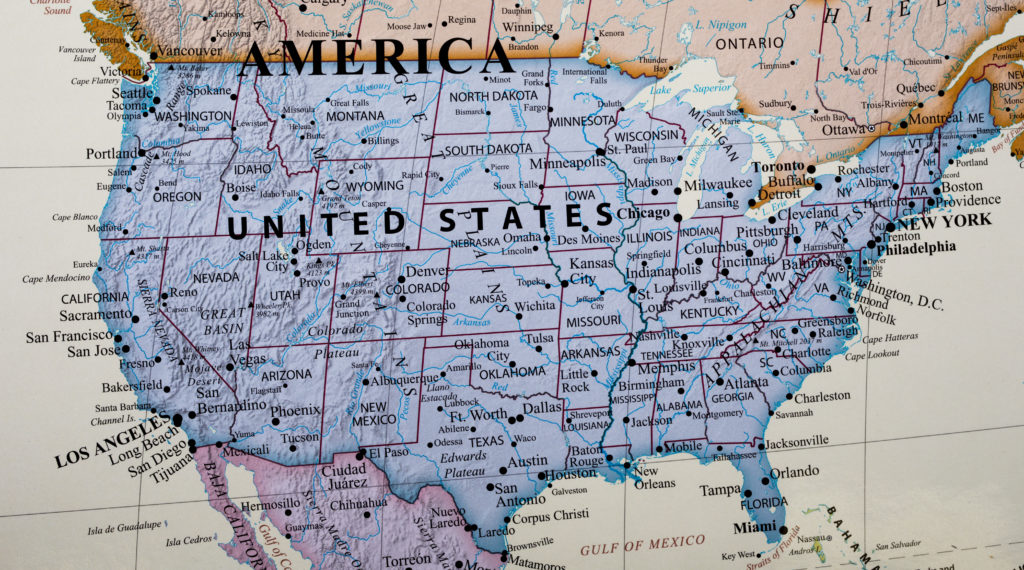
States continue to take significant actions in attempts to lessen barriers to workforce entry caused by occupational licensing. CSG currently facilitates a consortium of 11 states looking at occupational licensing reform as a part of the Occupational Licensing Assessing State Policy and Practice project in partnership with NCSL and NGA, funded by the US Department of Labor. However, the examples below come from states not currently participating in this project’s consortium, signifying that occupational licensing reform is a priority for states nationwide, and not just the 11 states participating in this CSG project.
Oklahoma
In December 2016, Oklahoma Governor Mary Fallin called for the formation of the Occupational Licensing Task Force to study the issue of occupational licensing in Oklahoma and to provide recommendations by December 2017. In January 2018, the Task Force released their final report with a draft blueprint for analyzing occupational licensing. This blueprint can be used to evaluate whether government licensing is necessary in a particular occupation. It takes factors such as public health and safety risks, means to protect public interest, and board member participation into consideration to determine if licensing is appropriate or if a less restrictive means of regulation could be used.
The blueprint starts by asking the question: “Is there a compelling public interest that needs to be protected?” From there, the blueprint calls for using the “least restrictive means that would sufficiently protect the public interest.” The blueprint lists 13 possible ways to protect the public interest, ranked from the least restrictive (market competition) to the most restrictive (occupational licensing). The Task Force is also suggesting that state laws mandating licenses be subject to legislative review periodically — a sunset provision — and that this standard blueprint be used to make sure licensing is the least restrictive way to meet the state’s interest.
Louisiana
Sponsored by Rep. Julie Emerson, Louisiana House Bill 748 establishes a review process within the office of the governor. This occupational analysis would use a two-step process to review both proposed and existing regulations. First, there should be credible empirical evidence of a systematic problem that warrants government intervention. Second, if such a problem exists, the regulation must be the least restrictive form that imposes the lowest burdens and costs while still protecting consumers from harm. Every year, the office will examine one-fifth of the state’s occupational regulations to identify any rules or laws that should be repealed or modified so that they are the least restrictive. HB 748 gives Louisiana one of the most robust licensing review process in the nation.
Arizona
Arizona Governor Doug Ducey issued an executive order to all state licensing boards in March 2017 mandating a full review of all existing licensing requirements. It also requires the licensing boards to provide economic justifications for any standard that is more burdensome than the national average and for any license that is not required by at least 25 other states. The Arizona State Legislature followed suit by passing SB 1437, or the Right to Earn a Living Act, which bars licensing boards from writing regulations that restrict entry into a profession if a public health or safety benefit cannot be proven. The new law also empowers individuals to petition a board for further review of a licensing requirement.
Nebraska
Similar to Louisiana’s sunset review process, Nebraska passed an Occupational Board Reform Act (LB 299) which requires state lawmakers to undertake a review of Nebraska’s occupational licensing laws in order to loosen or eliminate requirements that serve as barriers to employment without benefiting public safety. The bill requires that licensing laws “respect the fundamental right of an individual to pursue an occupation” and requires lawmakers to favor less restrictive forms of regulation in circumstances where licensing rules violate that right.
Another important aspect of the bill is a change how state licensing boards will review criminal histories. As a result of LB 299, before applicants complete any required training, they will be able to petition an agency to see if their criminal history would be disqualifying. If denied, applicants will then be able to appeal that disqualification. In some cases, an aspiring worker will go through the entire credentialing process only to find out that a previous conviction disqualifies them from practicing the profession. LB 299 eliminates that possibility by telling the applicant up front whether or not they possess a disqualifying conviction.
The themes from these state examples are similar. States are trying to determine whether legitimate health and safety concerns exist for licensed professions, and if so pursue solutions to licensing problems by finding least restrictive form of regulation while continuing to ensure the health and safety of the consumer.
This workforce product was funded by a grant awarded by the U.S. Department of Labor’s Employment and Training Administration. The product was created by the recipient and does not necessarily reflect the official position of the U.S. Department of Labor. The Department of Labor makes no guarantees, warranties, or assurances of any kind, express or implied, with respect to such information, including any information on linked sites and including, but not limited to, accuracy of the information or its completeness, timeliness, usefulness, adequacy, continued availability, or ownership. This product is copyrighted by The Council of State Governments.